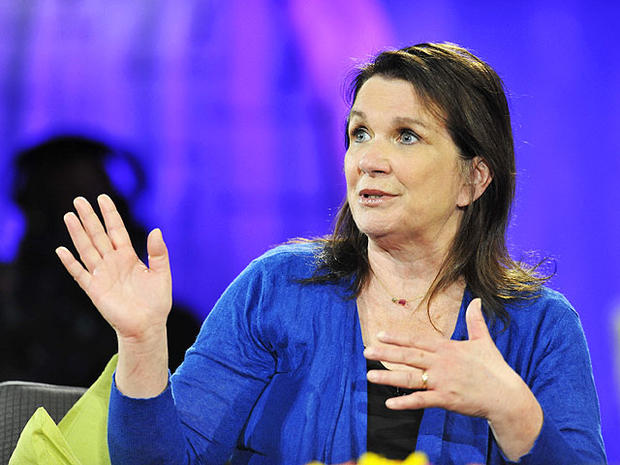Elizabeth Edwards Ends Cancer Treatment: What Lies Ahead?
(CBS/AP) What lies ahead for Elizabeth Edwards?
Gravely ill, the estranged wife of failed politician John Edwards has reportedly decided to discontinue treatments for the metastatic breast cancer that could take her life within weeks or months.
Edwards, 61, was briefly hospitalized last week but is now at home with her family in North Carolina, according to an anonymous family friend. A statement issued by the family said doctors had told them it would be unproductive to continue treating the disease.
But Edwards' decision doesn't necessarily mean forgoing treatment entirely. Doctors can now offer terminal cancer patients a variety of drugs and medical procedures aimed at maximizing comfort and mobility while minimizing pain and other symptoms resulting from the spread of untreated tumors.
Cancer had already spread to Edwards' skeleton, and now reportedly has spread to her liver. Dr. J. Leonard Lichtenfeld, deputy chief medical officer of the American Cancer Society, told CBS News that advanced breast cancer commonly spreads to the bones, liver, lungs, and brain. "Those are the areas that cause the most concern," he said.
"Many patients with advanced cancer experience pain, so it is important to make sure that pain is well-controlled," Dr. George W. Sledge, president of the American Society of Clinical Oncology, told CBS News. Often pain is controlled with narcotics, although in some cases radiation and anesthesiologist-administered nerve blocks can be used to shrink painful tumors, he said.
Neither Lichtenfeld nor Sledge is involved in Edwards' care.
Breathing difficulties, trouble getting around, and declines in mental function are also common in patients with advanced cancer, according to Dr. Lichtenfeld. But, he said, doctors today are much better at controlling the discomfort these problems cause as death approaches.
"Yes, patients can have these symptoms," said Dr. Lichtenfeld." But what we used to see 20 or 30 or 40 years ago is much less common."
As death approaches, cancer patients generally have several decisions to make, said Dr. Sledge. For example, what arrangements need to be made for surviving family members? And when the end comes, where does the patient want to be?
"The majority of patients prefer to die at home," said Dr. Sledge.
Despite the grim days facing her, Edwards remains upbeat. "The days of our lives, for all of us, are numbered," she wrote Monday on Facebook. "We know that. And yes, there are certainly times when we aren't able to muster as much strength and patience as we would like. It's called being human. But I have found that in the simple act of living with hope, and in the daily effort to have a positive impact in the world, the days I do have are made all the more meaningful and precious. And for that I am grateful."

